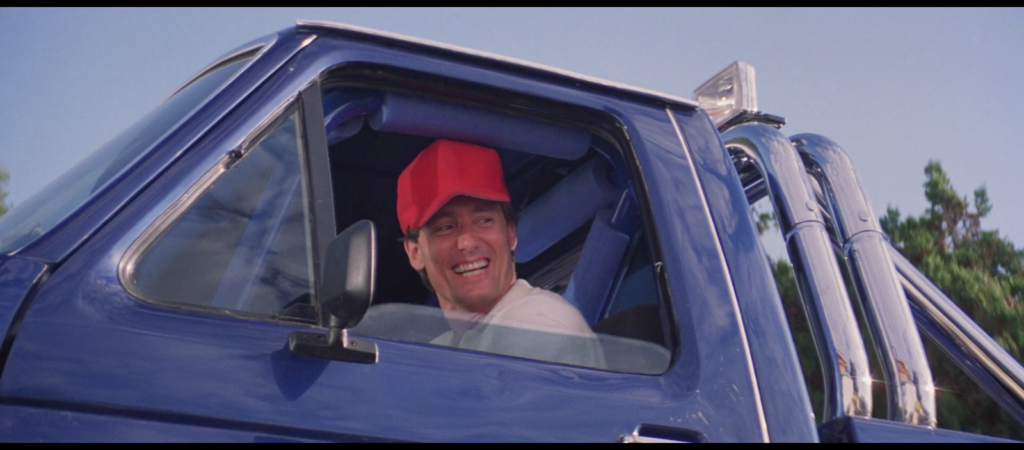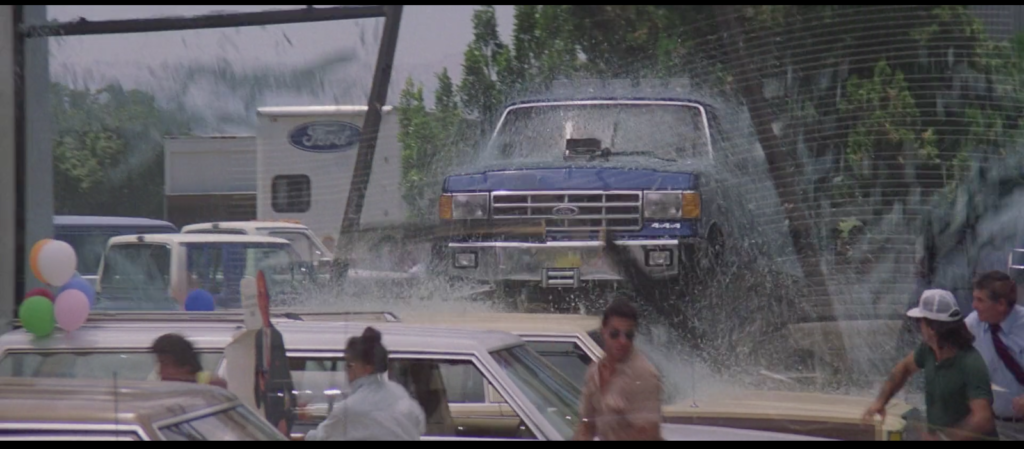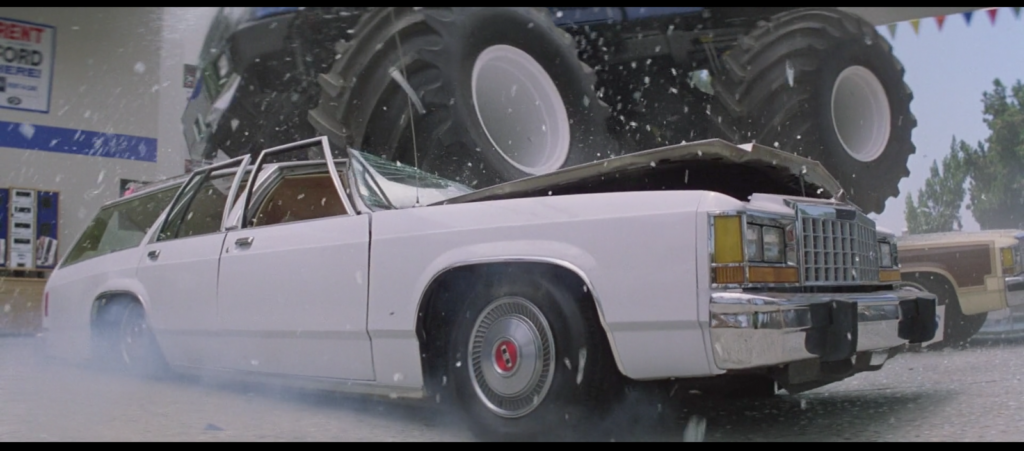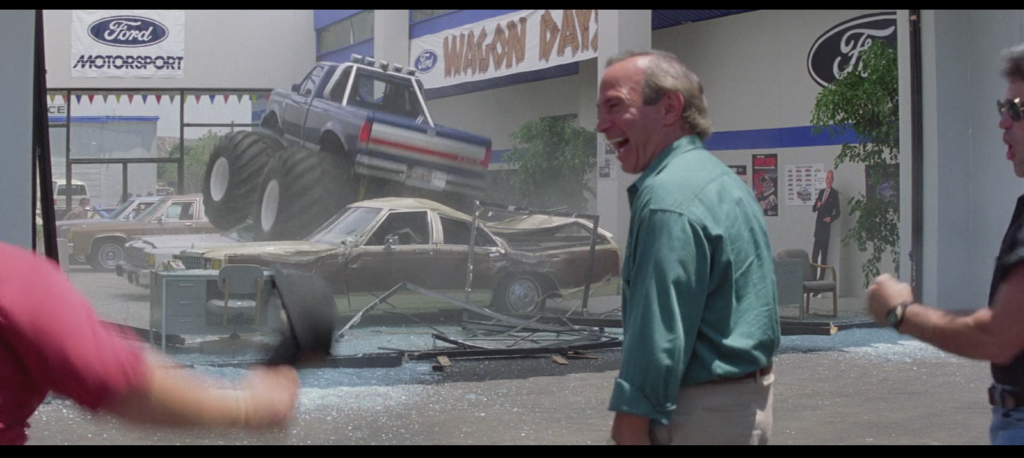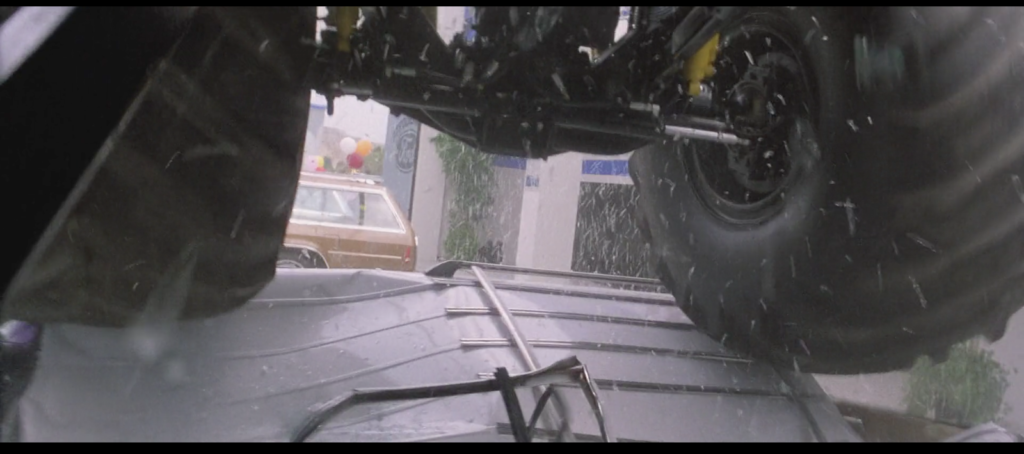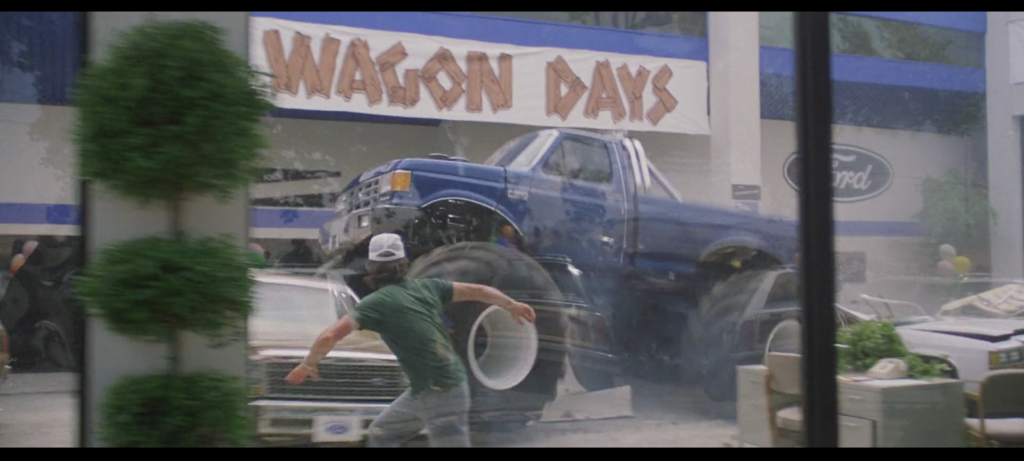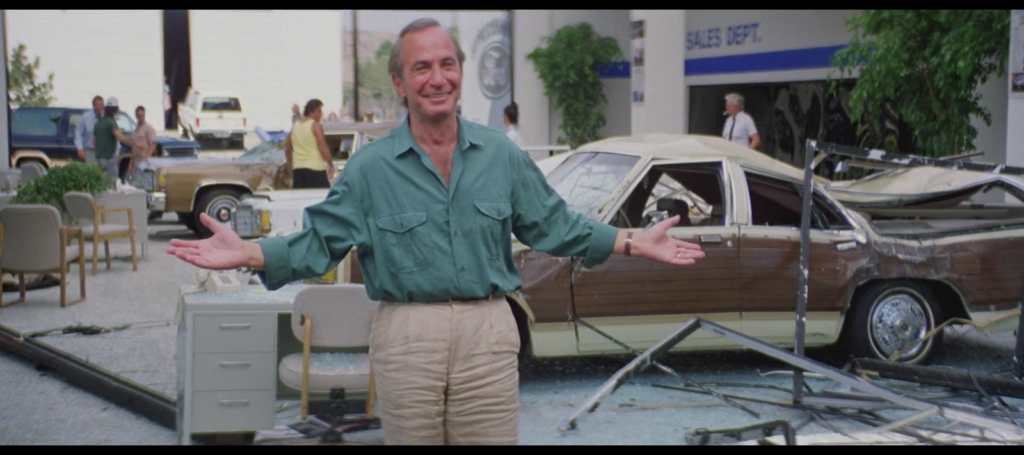Road House is a film in which a man runs over a car dealership with a monster truck.
Not a car. A car dealership.
He runs it over.
With a monster truck.
They mount a camera between the tires and everything. To capture every nuance. Of running over a car dealership. With a monster truck.
During Wagon Days, no less.
Obviously I’ve known that this happened ever since I first saw the film. I appreciated how over the top it is, even for Brad Wesley and his goons, and even for Road House. The presence of the monster truck at all is…well, it leaps right out at you the first time you see Ketchum drive up to Wesley’s mansion in it, like his brother had borrowed his Mercury Cougar for a trip to St. Louis so he drove his other car to his boss’s house, and his other car just so happened to be a monster truck. But it wasn’t until the other day, when I wrote the phrase “running over a car dealership with a monster truck,” that…no, actually, it was some hours later, when I reiterated the point on twitter. That’s what brought it all home for me. Road House is a film in which a man runs over a car dealership with a monster truck.
It sounds like any other wanton act of vehicular destruction, at first. “Oh yeah, he ran over a c—wait, what?” It takes a second to sink in. The closest point of comparison I can come up with is in the post-show interviews at the end of Waiting for Guffman, when Parker Posey’s character talks about her dad getting out of jail because he didn’t do anything that bad, “he just ruined some property.” Stole, destroyed, sure, whatever, but then you register the word choice. Ruined? Now I’m intrigued. Now I want to know, but also I don’t want to know. You know? Ruining property, like running over a car dealership, is understating an overstatement.
The other film I think of when I think of this moment is Citizen Toxie: The Toxic Avenger IV, because that’s the movie that was in pre-production when I interned at Troma Studios in the summer of 1999. I had very little to do with the finished product; my main contributions were scouting for a production office (unsuccessfully) and taking an uncredited rewrite pass at the screenplay (also unsuccessfully, though interns rewriting screenplays says a lot about Troma).
What I did do was read All I Need to Know About Filmmaking I Learned from The Toxic Avenger, the memoir cum how-to manual by Troma co-founder and creative force Lloyd Kaufman and a then-unknown James Gunn. The idea that’s stuck with me the longest since I read the book, aside from Karo Syrup making the best fake blood, is that if you have any means at your disposal by which to raise the apparent production value of your film, you avail yourself of those means. An eccentric uncle with a crazy-looking house? A rich friend with an insanely nice car? A major urban metropolis with a tourist mecca where there are simply too many people for the cops to catch you should you choose to film someone running naked through Times Square without a permit? (The filming, not the nakedness.) It doesn’t matter whether or not these things are germane to your movie. They look awesome and/or expensive. Make them germane.
I think about this every time I see a movie about barfights at one in the morning set a scene in a Ford dealership in broad daylight where a deranged businessman orders his minion to drive a monster truck through a glass enclosed showroom and over every single new car inside of it. I think about it every time I see the monster truck in this movie at all. Road House had access to a car dealership and Road House had access to a monster truck, ergo Road House has a scene in which a man runs over a car dealership with a monster truck. Those who can, do.
Tags: brad welsey, ketchum, monster truck, pete strodenmire, road house, wagon days

